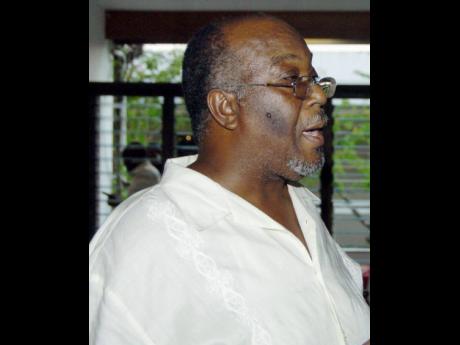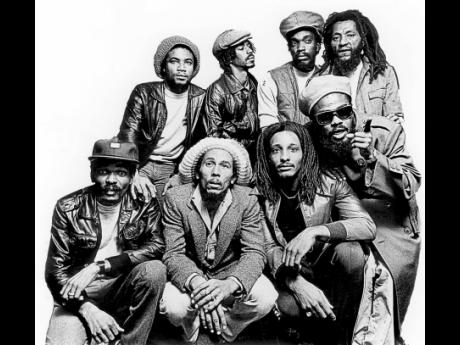Julian ‘Jingles’ Reynolds | The true story of reggae music [Part I]
Seeing on the Internet the elation and look of satisfaction of the people around culture minister Olivia ‘Babsy’ Grange as the United Nations Educational Scientific & Cultural Organization (UNESCO) meeting in Mauritius off the coast of East Africa gave official recognition to reggae music as an “intangible cultural heritage” born in Jamaica and deemed worthy of “protection and promotion,” as described in Al-Jazeera News, I couldn’t help but reflect on all who contributed, sacrificed, and were fulfilled by this awesome cultural treasure.
And even to get to that juncture on Thursday, November 29, Minister Grange had to forcefully present herself and her team at the UNESCO meeting, firmly requesting that the matter be voted on then and not delayed for another two years. The report in The Gleaner stated that the Jamaican vote was staunchly supported by Cuba, Senegal, and Palestine, soon to be supported by almost every country in attendance.
This speaks to the universality of reggae music, and that this took place off the coast of Africa must bring great satisfaction to the Rastafari brethren and sistren around the world.
It was particularly pleasing to see the emphasis Minister Grange paid, in a release from Mauritius, to the major contribution of the Rastafari movement to reggae.
From my vantage point in the late 1960s – specifically, 1968, when ‘reggae’ became identifiable as a genre of Jamaican music – the influence of Rastafari, its focus on Africa, peace and love, the uniqueness of “the black man,” the universality of mankind, the spirituality, creativity, and unending struggle for equal rights and justice for the deprived peoples of the world, was unquestionable and forthright.
The preachings and teachings of Rastafari gave the youths of Jamaica a moral compass. Elders such as Mortimo Planno, Count Ossie, Sam Clayton, Sam Brown, Philbert Alvaranga, Douglas Mack, and Ras Michael were integral to this emergence of a musical art form with extensive social, moral consciousness, crying out against injustice. This coincided with the world phenomenon of the civil rights movement in the United States, to African and Asian nations fighting for their independence, free of colonial domination and subjugation.
FIRST RECORDINGS
As a young journalist, I had selected a path of paying special attention to what was emerging in Jamaica by writing about the cultural journey of the urban Jamaican youths, primarily Kingstonians – young men and women who were putting out this new, beautiful, and poignant art form called reggae music.
I had taken over a weekly column, Record Shop, appearing in the Friday, Weekend STAR, that reported only on British, American, and European popular music and performers. However, when I proposed to my editors, the late Jack Anderson and Barbara Gloudon, O.J., what I wanted to do, they did not hesitate, giving me the go-ahead. Record Shop became a must-read for many throughout Jamaica.
I was also writing features in The STAR on the young talents putting out this unique music – singers, musicians, producers, and engineers – and writing the once-weekly column in The Gleaner, ‘Merry Go Round’, covering live entertainment in clubs, concerts, stage plays, art exhibitions, and other cultural fares.
The first recordings of ‘reggae’ songs were released in 1968:
- Larry Marshall’s Nanny Goat, recorded on the Studio One/Coxsone label, produced by the late Clement ‘Coxsone’ ‘Downbeat’ Dodd;
- Do The Reggay, performed by Toots Hibbert and The Maytals and produced by the late Leslie Kong on his Beverly’s Records label;
- Israelites, performed by the late Desmond Dekker and the Aces, produced by Leslie Kong on the Beverly’s Records label;
- Love Me Forever by Carlton and the Shoes on the Studio One label;
- Feel The Rhythm, recorded and produced by the late Clancy Eccles on his Clandisc label.
These were the flag bearers of the musical genre ‘reggae’.
The untouchable Lee ‘Scratch’ ‘The Upsetter’ Perry and his Upsetters band, with Aston ‘Family Man’ Barrett, the late Carlton Barrett, Glen Adams, Lloyd Charmers, Alva Lewis, and Earl ‘Wire’ Lindo, beginning in 1968 with ‘People Funny Boy’, consistently produced reggae gems.
THE ROLE OF THE MEDIA
I first became exposed to the word ‘Reggay’ in 1967 on the B side of a 45 single. It was an instrumental by Tommy McCook & the Supersonics on the Treasure Isle label, produced by the late Arthur ‘Duke’ Reid. The source of the word itself is unsure. Two prominent anecdotes were that it originated from ‘streggae’ – a loose female, and ‘ragga’ – from ragamuffin.
An ignored and unappreciated, but major contributor to the development of reggae is the media, particularly entertainment journalists such as the late G. Fitz Bartley, the late Tony Laing, Jackie Estick, Clifton Segree, Tony Berry, and more recently, Bob West, Balford Henry, the late T. Boots Harris, and Ras Basil Walters.
SWING magazine, the “bible of reggae”, published by Johnny Golding and the Golding family of Golding Printing Service fame, with passion and conviction, brought reggae to the Jamaican entertainment populace, and, arguably, was the first to put the name “reggae” in print.
Bartley, Laing, and I wrote for both The STAR and SWING. SWING also nurtured talented young writers and poets such as Norma Hamilton and Mutabaruka, among others. Entertainment print journalists were cherished by the singers and musicians because that was their only means of exposure in what they called a “write-up”.
I developed friendships with several artistes, among them Bob Marley and The Wailers, Bob Andy, The Heptones, The Melodians, Alton Ellis, Ken Boothe, Dennis Brown, Rita Marley, Judy Mowatt, Marcia Griffiths, B.B. Seaton, to mention a few, because of the “write-ups” I provided them in the early stages of their careers.
Recently, a journalist reminded me that as a teenager, he recalled reading an article I wrote on The Wailers in The Weekend Star, likening Bob Marley and The Wailers to Sly & the Family Stone, the Beatles, the Rolling Stones, and Bob Dylan. He said that one of his friends, when they gathered on their corner to read the article, dismissed my predictions for the Wailers as “foolishness”.
In doing research recently, I found the article ‘Wailers on rough road to success’, which was published on February 6, 1970, on Bob Marley’s birth date. I can just imagine the special feeling of joy he must have felt.
- Julian ‘Jingles’ Reynolds is chairman of Sounds & Pressure Foundation in downtown Kingston, a novelist (‘A Reason For Living’) and a documentary filmmaker. Email feedback to columns@gleanerjm.com and sounds_pressure@yahoo.com.



